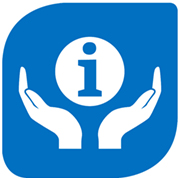Accessible Information Standard
What is the Accessible Information Standard?
 By 31 July 2016, all organisations that provide NHS or adult social care had to follow the Accessible Information Standard by law.
By 31 July 2016, all organisations that provide NHS or adult social care had to follow the Accessible Information Standard by law.
The Accessible Information Standard aims to make sure that people with sensory loss or impairment, or with a learning disability or communication need, have access to information that they can understand and any communication support they might need.
The standard tells organisations how to make information accessible to patients, service users and their carers and parents. This includes making sure that people get information in different formats if they need it, such as large print, braille, easy read and audio file.
The Accessible Information Standard also tells organisations how to support people's communication needs, for example by offering support from a British Sign Language (BSL) interpreter or an advocate.
How will we meet the standard?

At the RUH we will:
- Ask you if you have any information or communication needs, and find out how to meet your needs. There will also be posters in our outpatient clinics and on our wards
- Record your needs on the electronic patient record (called Millennium)
- Flag in the electronic patient record, so it is clear that you have information or communication needs and how you wish us to meet your needs
- Share information about your needs within the hospital so that each of our departments is aware
- Act to make sure that you receive your information in an accessible way and we will provide communication support if you need it
We will provide your appointment and admission letter and clinical information leaflets in alternative formats such as large print, braille, easy read and audio file. We will provide a British Sign Language (BSL) interpreter or an advocate if you require one.
National Services
NHS 111 BSL Service
This service is open from 08:00 to midnight every day.
Further information
NHS England - Accessible Information Standard
General information about the Accessible Information Standard.
Sirona Health & Care
Accessible Information Standard information from Sirona Health & Care.
Further information can be found on NHS England’s website at: www.england.nhs.uk/ourwork/patients/accessibleinfo/
More information about how we provide information to our patients can be found on our Patient Experience website.

